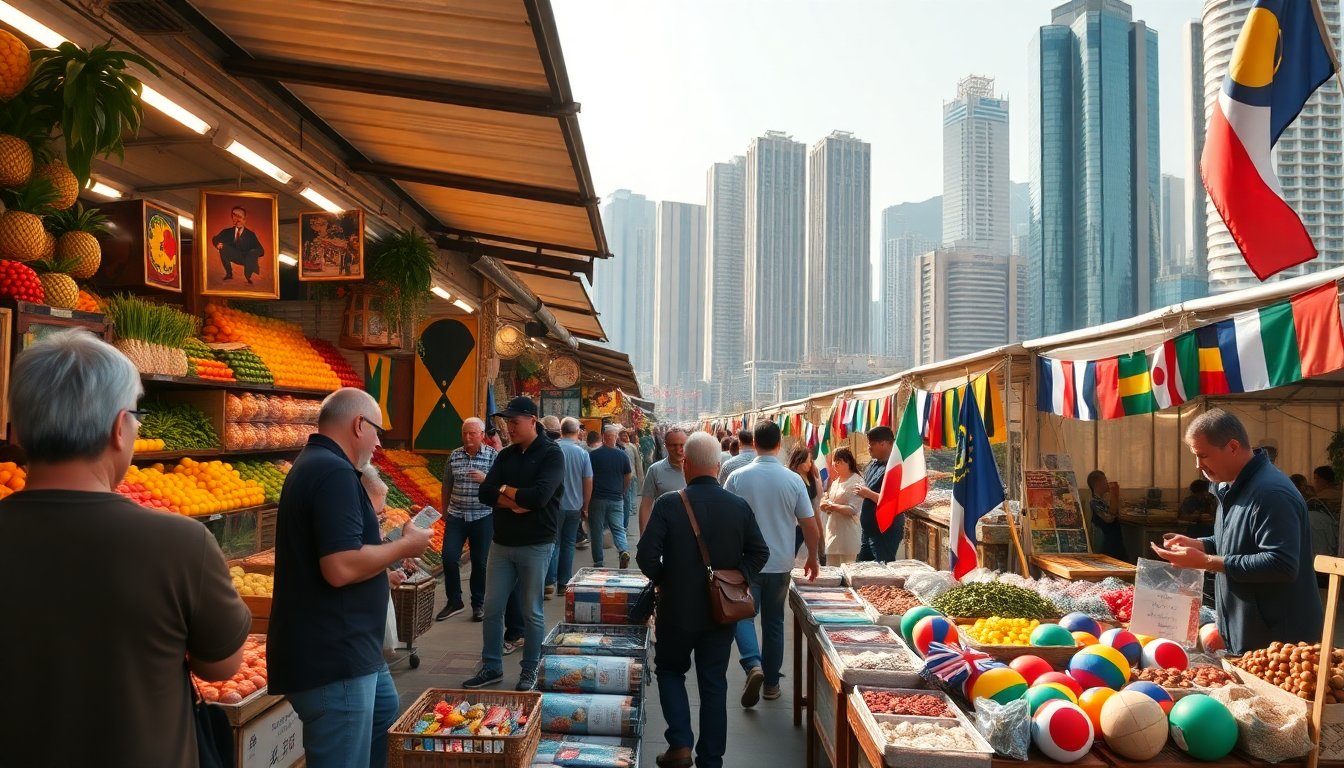Table of Contents
In light of recent developments in the Sino-US trade dialogue, Hong Kong is actively planning to diversify its export markets. The city’s commerce chief, Algernon Yau, has emphasized the necessity of expanding trade networks to include regions such as Latin America, Africa, and Central Asia. This shift is a response to ongoing trade tensions and the potential for improved export growth following a thaw in tariffs between the United States and China.
After a breakthrough in trade negotiations last month, Hong Kong is optimistic about its export performance, particularly with strengthened connections to Southeast Asia. Yau expressed confidence during a radio interview, highlighting the need for Hong Kong to seek new directions and opportunities amid the shifting global landscape.
Expanding into new markets
The city is poised to enhance its trade relationships by exploring untapped markets that offer fresh opportunities for exports. With the ongoing reciprocal tariff of 10 percent on imports from Hong Kong and mainland China remaining in effect until August, the government recognizes the urgency to diversify.
Strengthening ties with Southeast Asia
Yau noted that despite the recent summit between President Xi Jinping of China and President Donald Trump of the United States, significant challenges remain unresolved. As nations navigate these complexities, the consensus among many countries is leaning towards increased cooperation and a strong resistance to unilateral approaches.
This sentiment underscores the need for multifaceted cooperation, which is critical in fostering economic resilience. For Hong Kong, this means not only protecting existing trade routes but also actively pursuing new partnerships that can help buffer against uncertainties posed by international trade policies.
Challenges and opportunities
While the easing of some trade tensions presents opportunities, challenges remain. The reciprocal tariffs imposed by the United States serve as a reminder of the fragile nature of global commerce. Yau pointed out that many nations are reevaluating their trade strategies, creating a dynamic environment for Hong Kong to position itself as a reliable trade partner.
A focus on cooperation
The dialogue surrounding trade has shifted, with many countries advocating for collaborative efforts rather than unilateral actions. This cooperative approach is essential for Hong Kong, which has long thrived on its ability to connect with various markets around the globe. As Yau articulated, the recent trade talks may not have resolved all issues, but they have opened doors for new collaborations.
As Hong Kong sets its sights on Latin America, Africa, and Central Asia, the potential for export growth appears promising. By leveraging its strategic location and established trade networks, the city can enhance its role as a regional hub for commerce, tapping into emerging markets that are eager for new partnerships.
Looking ahead
Hong Kong’s approach to trade diversification represents a proactive strategy aimed at ensuring long-term economic stability. The government’s focus on strengthening ties with Southeast Asia, coupled with efforts to explore new markets, positions the city to thrive in an increasingly interconnected world.
As trade dynamics continue to evolve, Hong Kong’s commitment to cooperation and diversification will be pivotal. By fostering relationships with a broader range of countries, the city can mitigate risks associated with global trade uncertainties and secure its economic future.


